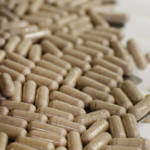

Supplement Product Forms 101
Understanding dietary supplement forms and choosing the best one for your product can be complicated. A variety of factors come into play including what form works best for your formulation as well as who you are marketing it to and what form your competition takes.
When choosing the form for your supplement, it’s important to start by asking a few questions.
What form is the best delivery method for your product? Certain supplements may need to be delivered in specific forms based on their stability, release time, uniformity, etc.
If several forms could work, what is the difference in production cost? Work with a contract manufacturer like Uckele Health & Nutrition to analyze the financial data as well as discuss the strategy that fits best with your business goals.
What forms will be the quickest to get to market? Sometimes it may take a creative approach to overcome the challenges of today’s supply chain.
What do customers prefer? Surprisingly, taste and size are not as important to consumers as ease of swallowing and price so keep these in mind as you choose a format for your supplement.
Capsules vs. Tablets
Capsules and tablets, the most common form of oral pills, come in a variety of options.
- Capsules have a hard, smooth casing made of gelatin or vegetable cellulose and are most often filled with powder or granules. Larger capsules can be difficult to swallow but the shell of the capsule masks any unpleasant ingredients.
- Tablets are manufactured by compressing powder or granules and any fillers, binders, or bulking agents. For more concentrated formulations or higher doses, tablets can be a good option but certain ingredients may have an unpleasant taste.
| Capsules | Tablets | |
|---|---|---|
| Easy to swallow | X | |
| May be split or crushed | X | |
| Bitter/unpleasant taste | Can be masked | More noticeable |
| Dosage | Regular doses | Generally higher doses |
Softgels vs. Chewable Tablets
Softgels and chewable tablets have grown in popularity with consumers and offer an alternative certain customers are searching for.
- Softgels feature a liquid supplement encased in a gelatin capsule that protects the ingredients from oxidation and UV rays. Compared to capsules they are easier to swallow and are either tasteless or have a very mild taste.
- Chewable tablets are a good solution for consumers who have trouble swallowing because they are designed to be broken down before swallowing. They often contain sweeteners, flavoring, and coloring to make them more appealing, especially for children.
| Softgels | Chewable Tablets | |
|---|---|---|
| Easy to swallow | X | X |
| May be split or crushed | X | |
| Taste | Mild or tasteless | Flavored |
Gummies vs. Liquids
Gummy and liquid supplements are increasing in use by the consumer and can offer a sought-after alternative to classic supplement forms.
- Gummy supplements are similar to chewable tablets because they offer a flavorful and convenient option for supplementation. They can be formulated for individual or multivitamins.
- Liquid supplements make many vitamins highly bioavailable and unlike powders, do not need to be mixed with water. Liquid forms are great for individuals who have a hard time swallowing or want an alternative to pills.
| Gummies | Liquids | |
|---|---|---|
| Easier to swallow | X | X |
| Contain natural or artificial ingredients | X | X |
| Taste | Can be flavored | Bitter taste is more noticeable |
| More easily absorbed | X |
How do you choose?
Understanding the needs of your ideal customer, your competition, and the right form for your supplement can help you ensure the success of your supplement brand. Speak to one of our contract manufacturing specialists to better understand the right form for your supplement.
